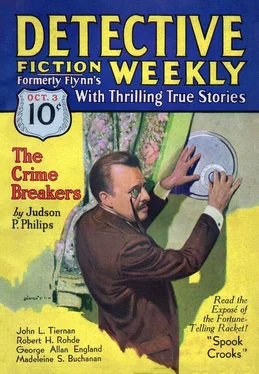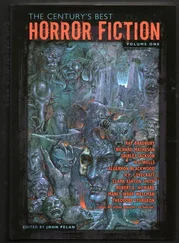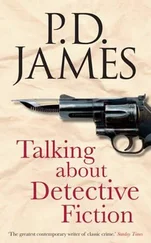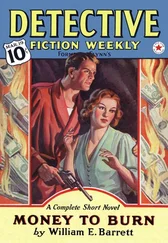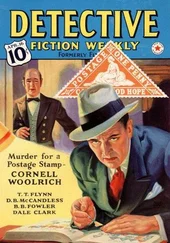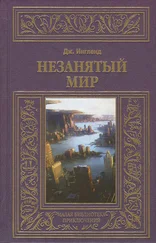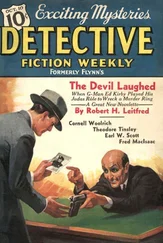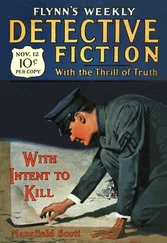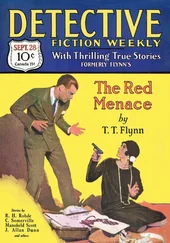Джордж Энгланд - Detective Fiction Weekly. Vol. 62, No. 2, October 3, 1931
Здесь есть возможность читать онлайн «Джордж Энгланд - Detective Fiction Weekly. Vol. 62, No. 2, October 3, 1931» весь текст электронной книги совершенно бесплатно (целиком полную версию без сокращений). В некоторых случаях можно слушать аудио, скачать через торрент в формате fb2 и присутствует краткое содержание. Город: New York, Год выпуска: 1931, Издательство: The Red Star News Company, Жанр: Детектив, на английском языке. Описание произведения, (предисловие) а так же отзывы посетителей доступны на портале библиотеки ЛибКат.
- Название:Detective Fiction Weekly. Vol. 62, No. 2, October 3, 1931
- Автор:
- Издательство:The Red Star News Company
- Жанр:
- Год:1931
- Город:New York
- ISBN:нет данных
- Рейтинг книги:3 / 5. Голосов: 1
-
Избранное:Добавить в избранное
- Отзывы:
-
Ваша оценка:
- 60
- 1
- 2
- 3
- 4
- 5
Detective Fiction Weekly. Vol. 62, No. 2, October 3, 1931: краткое содержание, описание и аннотация
Предлагаем к чтению аннотацию, описание, краткое содержание или предисловие (зависит от того, что написал сам автор книги «Detective Fiction Weekly. Vol. 62, No. 2, October 3, 1931»). Если вы не нашли необходимую информацию о книге — напишите в комментариях, мы постараемся отыскать её.
Detective Fiction Weekly. Vol. 62, No. 2, October 3, 1931 — читать онлайн бесплатно полную книгу (весь текст) целиком
Ниже представлен текст книги, разбитый по страницам. Система сохранения места последней прочитанной страницы, позволяет с удобством читать онлайн бесплатно книгу «Detective Fiction Weekly. Vol. 62, No. 2, October 3, 1931», без необходимости каждый раз заново искать на чём Вы остановились. Поставьте закладку, и сможете в любой момент перейти на страницу, на которой закончили чтение.
Интервал:
Закладка:
“Of course I’d rather go back to Michigan,” Burke said. “I don’t think much of the hot seat.”
VIII
Governor Caulfield signed the extradition papers turning Burke over to Michigan, and the Michigan officers went into conference to agree upon a plan for the five hundred and sixty-eight mile trip back to the scene of Charles Skelly’s cold-blooded murder. It was agreed that the utmost secrecy must be used in arranging for the trip, especially since there had been vague rumors that the underworld might attempt to take Burke from the law and put him on the spot before he had an opportunity to turn squealer on the higher-ups who had hired him to do their killings.
At five o’clock on a morning last March, just as the first streaks of cold dawn appeared, Burke was bundled out of his cell and put into an armored car that waited at the curb outside with motor running. The large car seemed to bristle with machine guns. Four officers of the Michigan State Police were seated inside, alert. Their revolvers were cocked for any foray that gangland might attempt.
Then began a dash across the Middle West at breakneck speed. At eight twenty-five that night Burke was back in the little Michigan resort town, where for three months, he had hidden out as a peaceful country gentleman... until he had got drunk and lost his head over a trivial traffic mishap.
Back in the St. Joseph, Michigan, jail, seven guards grouped about his cell with shotguns slung across their knees and State Troopers patrolling the streets outside night and day, Burke was a sullen, growling prisoner. He chewed savagely on big, black cigars and cursed the newspaper men who came to the bars of his cell to ask him about his crimes.
“You guys never gave me a break and you won’t get anything out of me now, you—” he grumbled.
He had been in the jail only two days when I went to his cell accompanied by a deputy sheriff and succeeded in persuading him to talk — but not about his ignoble career. A score of police officers from nearly as many States where he was reputed to have left a trail of terror had questioned him during those two days and to them he had maintained that same stubbornness.
I found him seated on the edge of his iron bunk reading a Western story magazine, and as I talked to him the group of heavily armed officers sat grouped outside the bars, alert to any attempt which might be made to take their captive from them. But Burke seemed unmindful of their glowering watchfulness and the cold steel muzzles of their guns.
He sat in his shirt sleeves. A barber had been to see him a few minutes before, and he was clean-shaved excepting for the bristling black mustache he had grown in an attempt to escape the eyes of the law.
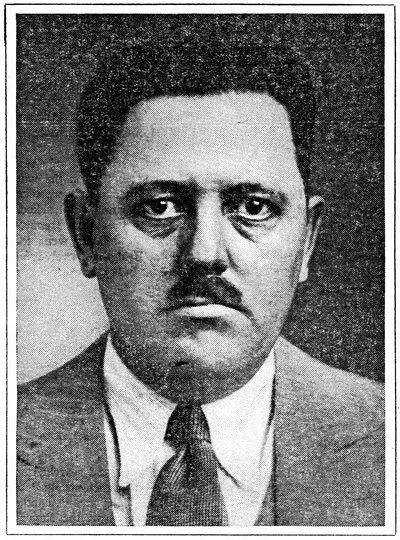
But it was his eyes, deep gray eyes with pouchy lids and a menacing cold look, that labeled him as the Fred Burke whose photographs have been emblazoned on thousands of police posters. It was those eyes that had attracted the attention of the young truck driver, Hunsaker, six months before and had finally resulted in the sensational capture.
“How did you happen to kill Skelly?” I asked.
He glanced away and remained silent.
“You must have been pretty drunk, weren’t you?”
“Now, listen here,” Burke said earnestly, “if you think I’m going to open up and tell you my life history, you’re badly mistaken. They’ve got a tight case against me here and I’m not going to say a word. You can’t blame me for that, can you?”
He admitted that he had lived in St. Joseph as Fred Dane, and that Viola Brenneman had posed as his wife. But that was all.
“How about the St. Valentine’s Day massacre in Chicago?” I persisted.
“Why don’t you guys lay off that stuff?” he demanded in a tone of disgust. “I wasn’t in Chicago when that happened, and I don’t know anything about it. All this talk about me bumping off seven guys for Capone — that’s a lot of bunk. I don’t even know Capone.”
I asked him about a number of other crimes with which he had been directly charged — the slaying of Frankie Yale, the Brooklyn gang leader, and the Milaflores slayings in Detroit — but his answers were a few terse curse words.
The only gangsters he knew were dead ones, and he was a victim of newspaper sensationalism. That was his story.
I asked him how he had succeeded in slipping through the well organized manhunt on the night of the Skelly killing. But there was no answer.
“Where did you get all of your experience with machine guns, Burke?” I pressed.
“What do you mean ‘experience’?”
“You served with the United States forces as a machine gunner in France, didn’t you?”
“Another newspaper yarn. I was in the tank corps and that’s no training school for killers. That’s for suicides.”
“How about this plastic surgery operation you had performed on yourself to disguise your features?”
“That plastic surgery, as you call it, happened to be a little automobile accident near Kansas City last summer.”
I prepared to leave.
“Well, Burke, you’re one gangster that’s just as tough as the cops say, aren’t you?”
“I used to be, I guess,” Burke said, and smiled. It was the first time a smile had been seen on his face since the five police officers with drawn guns had awakened him at daybreak in the little Missouri farm house and placed him under arrest.
Burke remained in the cramped little cell under the constant watchfulness of the armed guard until the end of April, when he was led out by a cordon of fifteen heavily-armed deputies and taken across the street to the court room of Circuit Judge Charles E. White.
A troop of State police officers and special deputies surrounded the courthouse and the same two machine guns once owned by Burke were mounted in front of the jail as a reminder to the crowd of eight thousand curious townsfolk that order must be preserved. When the killer, immaculately dressed in a blue suit, entered the court room, his handcuffs were removed and he was led to a chair between Sheriff Cutler and a State policeman.
Every one who entered the court room was searched and nine guards with sawed-off shotguns stood at the entrances.
Charles W. Gore, of Benton Harbor, who had been hired as attorney for Burke two weeks before, came over and whispered to his client, and when judge White mounted the bench, the lawyer stepped up and conferred with him and Prosecutor Cunningham for several minutes. Then the bailiff called for quiet.
“The defendant pleads guilty to the State’s charge of murder without degree,” Gore said.
There was an audible gasp from the craning spectators. Rurke appeared unmoved.
After a brief hearing, during which Forrest Kool. the young Buchanan farmer, pointed his finger at Burke from the witness stand and said calmly, “He’s the man who killed Skelly,” Judge White announced that Burke, as notorious as he was in the field of crime, could not be sentenced for first degree murder inasmuch as no premeditation could be shown in the killing of the officer.
“I, therefore, sentence you to life imprisonment in Marquette prison under the Michigan statute providing the penalty for second degree murder,” he said after Burke had been called before him.
“Thank you,” Burke said in a low voice, and turned to hold his hands out to the officers who stood near by with the handcuffs.
On the way back to the jail Burke, apparently relieved, joked with Sheriff Cutler.
“Bring along some fishing tackle when we go up, sheriff,” he laughed. “They tell me the trout fishing is good up around Marquette and the season opens May 1. Maybe we can take time out to get a few.”
Читать дальшеИнтервал:
Закладка:
Похожие книги на «Detective Fiction Weekly. Vol. 62, No. 2, October 3, 1931»
Представляем Вашему вниманию похожие книги на «Detective Fiction Weekly. Vol. 62, No. 2, October 3, 1931» списком для выбора. Мы отобрали схожую по названию и смыслу литературу в надежде предоставить читателям больше вариантов отыскать новые, интересные, ещё непрочитанные произведения.
Обсуждение, отзывы о книге «Detective Fiction Weekly. Vol. 62, No. 2, October 3, 1931» и просто собственные мнения читателей. Оставьте ваши комментарии, напишите, что Вы думаете о произведении, его смысле или главных героях. Укажите что конкретно понравилось, а что нет, и почему Вы так считаете.
